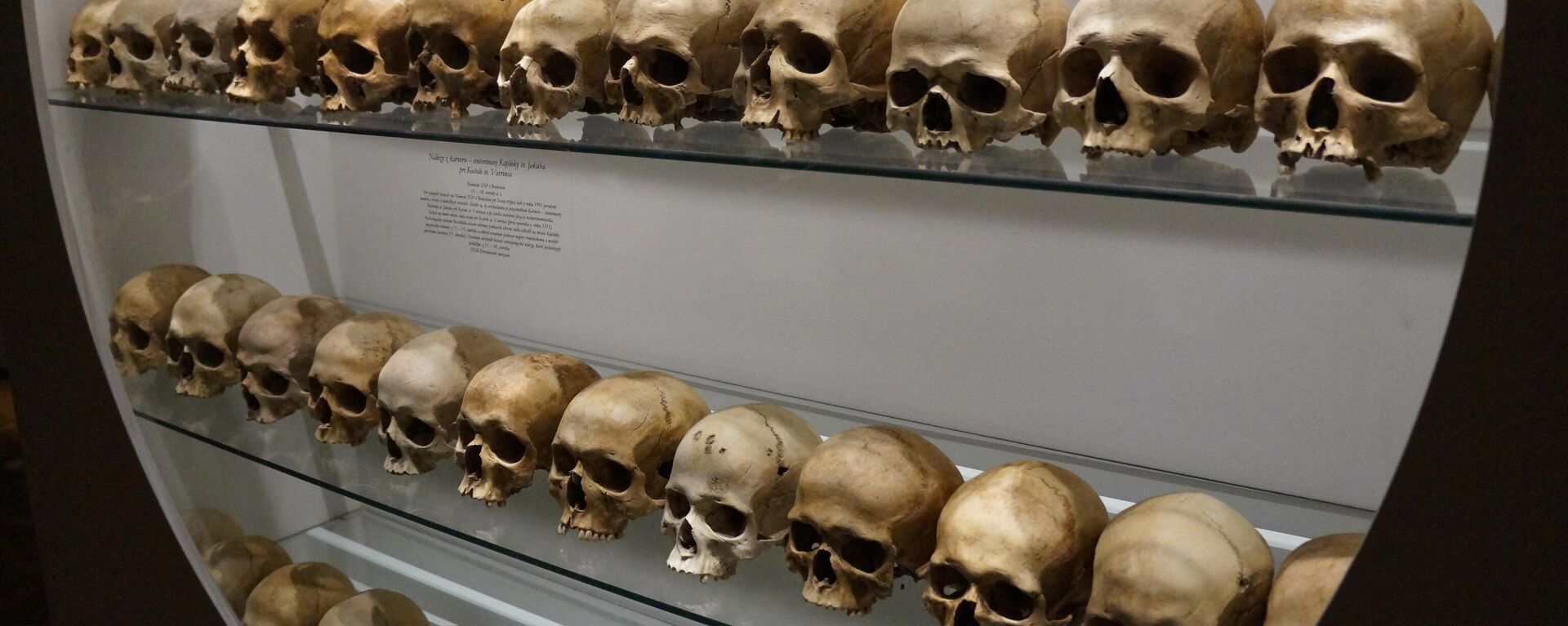https://en.sputniknews.africa/20240923/unearthing-ancient-secrets-oldest-human-genomes-reconstructed-in-south-africa-1068386586.html
Unearthing Ancient Secrets: Oldest Human Genomes Reconstructed in South Africa
Unearthing Ancient Secrets: Oldest Human Genomes Reconstructed in South Africa
Sputnik Africa
Reconstructing ancient DNA is a challenging process due to degradation over time, contamination from modern DNA, limited quantities of extractable DNA... 23.09.2024, Sputnik Africa
2024-09-23T14:33+0200
2024-09-23T14:33+0200
2024-09-23T18:04+0200
sub-saharan africa
south africa
southern africa
dna
science
europe
history
human
human body
research
https://cdn1.img.sputniknews.africa/img/102531/52/1025315274_0:0:1281:720_1920x0_80_0_0_d0f35fc008302e14b714378c1496d5f3.jpg
A team of South African and German researchers has reconstructed the oldest human genomes ever found in South Africa, dating back around 10,000 years.This breakthrough provides new insights into how the region was populated, according to study co-author Victoria Gibbon, a biological anthropology professor at the University of Cape Town.The genetic sequences were retrieved from the remains of a man and a woman found at the Oakhurst rock shelter, near the coastal town of George. These two individuals were part of a larger study involving 13 people who lived between 1,300 and 10,000 years ago. Prior to this discovery, the oldest genomes from the region were only about 2,000 years old.The research revealed an unexpected continuity between the ancient genomes and the genetic makeup of modern-day San and Khoekhoe groups in the same area.This genetic stability persisted until around 1,200 years ago, when newcomers introduced agriculture, pastoralism, and new languages to the region, leading to interactions with the local hunter-gatherer communities.Despite the significance of Southern Africa in early human history, DNA from the region has been challenging to preserve. Advances in technology, however, have allowed scientists to recover this valuable data, shedding light on population movements and relationships over nearly 9,000 years.
https://en.sputniknews.africa/20230906/dna-tests-of-skulls-taken-from-german-east-africa-provides-link-to-living-relatives-1061924111.html
south africa
southern africa
europe
Sputnik Africa
feedback@sputniknews.com
+74956456601
MIA „Rossiya Segodnya“
2024
Christina Glazkova
https://cdn1.img.sputniknews.africa/img/07e7/0b/07/1063380906_0:0:673:674_100x100_80_0_0_79628b4d0cd9f29291a57aa13bbf9e7a.jpg
Christina Glazkova
https://cdn1.img.sputniknews.africa/img/07e7/0b/07/1063380906_0:0:673:674_100x100_80_0_0_79628b4d0cd9f29291a57aa13bbf9e7a.jpg
News
en_EN
Sputnik Africa
feedback@sputniknews.com
+74956456601
MIA „Rossiya Segodnya“
Sputnik Africa
feedback@sputniknews.com
+74956456601
MIA „Rossiya Segodnya“
Christina Glazkova
https://cdn1.img.sputniknews.africa/img/07e7/0b/07/1063380906_0:0:673:674_100x100_80_0_0_79628b4d0cd9f29291a57aa13bbf9e7a.jpg
south africa, southern africa, dna, science, europe, history, human, human body, research
south africa, southern africa, dna, science, europe, history, human, human body, research
Unearthing Ancient Secrets: Oldest Human Genomes Reconstructed in South Africa
14:33 23.09.2024 (Updated: 18:04 23.09.2024) Christina Glazkova
Writer / Editor
Reconstructing ancient DNA is a challenging process due to degradation over time, contamination from modern DNA, limited quantities of extractable DNA, chemical modifications, fragmentation, and technological limitations.
A team of South African and German researchers has
reconstructed the oldest human genomes ever found in South Africa, dating back around
10,000 years.This breakthrough provides new insights into how the region was populated, according to study co-author Victoria Gibbon, a biological anthropology professor at the University of Cape Town.
The genetic sequences were retrieved from the remains of a man and a
woman found at the Oakhurst rock shelter, near the coastal town of George.
These two individuals were part of a larger study involving 13 people who
lived between 1,300 and 10,000 years ago. Prior to this discovery, the oldest genomes from the region were only about 2,000 years old.
The research revealed an unexpected continuity between the ancient genomes and the genetic makeup of modern-day San and Khoekhoe groups in the same area.
“Similar studies from Europe have revealed a history of large-scale genetic changes due to human movements over the last 10,000 years. These new results from southernmost Africa are quite different and suggest a long history of relative genetic stability,” Joscha Gretzinger, lead author of the study, said.
This genetic stability persisted until around 1,200 years ago, when newcomers introduced agriculture, pastoralism, and
new languages to the region, leading to interactions with the local hunter-gatherer communities.
Despite the significance of Southern Africa in early human history, DNA from the region has been challenging to preserve. Advances in
technology, however, have allowed scientists to recover this valuable data, shedding light on population movements and relationships over nearly 9,000 years.



